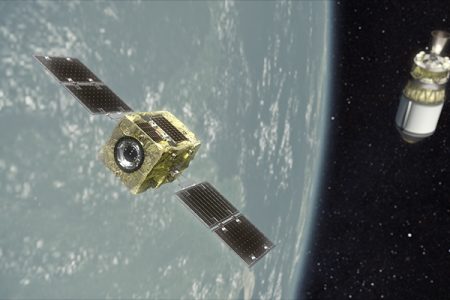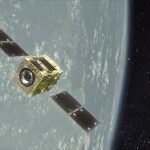The satellite will be carried into space by a Russian Soyuz rocket lifting off from Kazakhstan's Baikonur Cosmodrome.
 Japanese startup Astroscale is scheduled to launch a satellite into orbit next March on a test mission to remove space debris, according to the company’s officials.
Japanese startup Astroscale is scheduled to launch a satellite into orbit next March on a test mission to remove space debris, according to the company’s officials.
The satellite will be carried into space by a Russian Soyuz rocket lifting off from Kazakhstan’s Baikonur Cosmodrome.
Weighing around 175kg, the box-shaped satellite will extend solar panels like wings in a test mission, to attract a piece of mock debris magnetically before re-entering the earth’s atmosphere and burning up together with the captured object.
The mock debris, which has a magnetic plate, will be launched together with the satellite.
According to figures released in January 2019 by the European Space Agency (ESA) Space Debris Office, around 8,950 satellites have been launched into space. Out of that number, 5,000 satellites are still orbiting the earth, while 1,950 are operational satellites.
This means around 61% of satellites in orbit are non-functional debris. There have been 500 collisions, break-ups and explosions over the years, creating further fragmentation and debris.
Most satellites operate in Low Earth Orbit (between 800-2,000km), the same area where the majority of space debris is found.
Astroscale is focussed on providing an end-to-end capability, addressing mission licensing, spectrum acquisition, insurance and operations for debris removal.?















































































